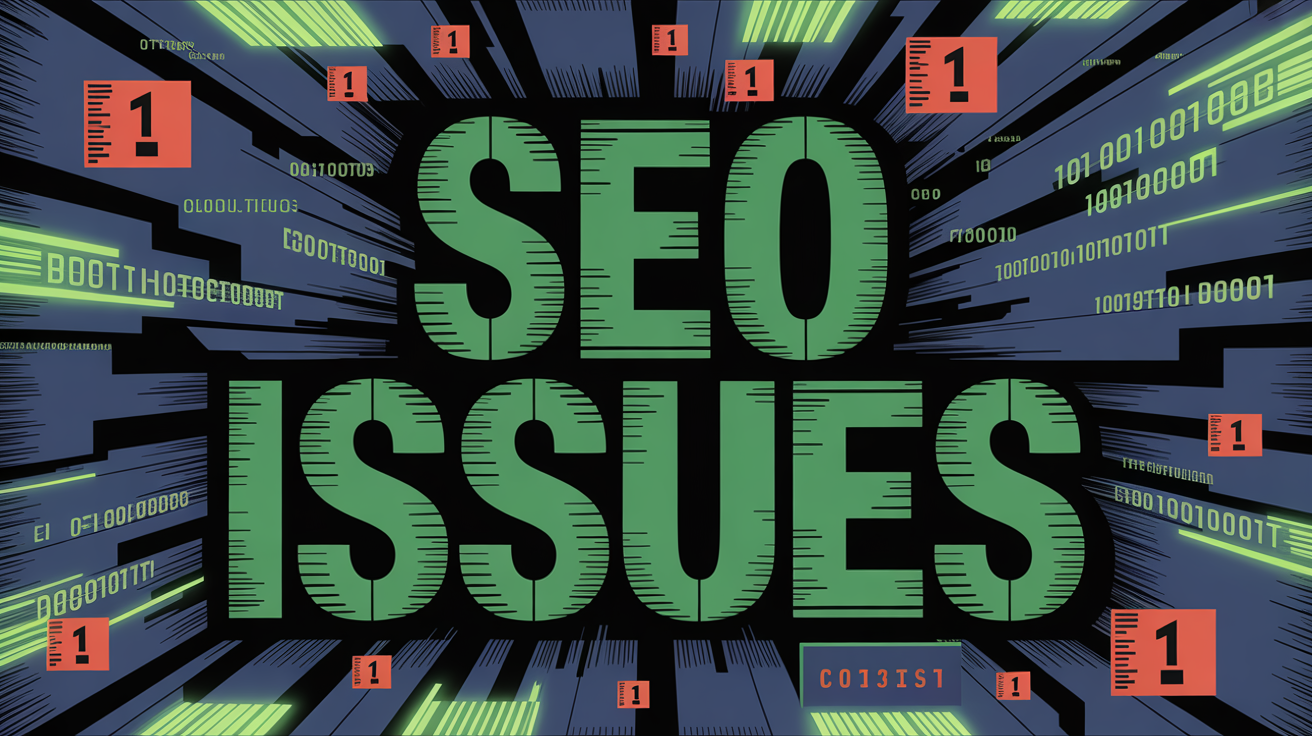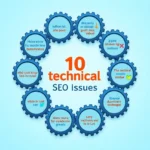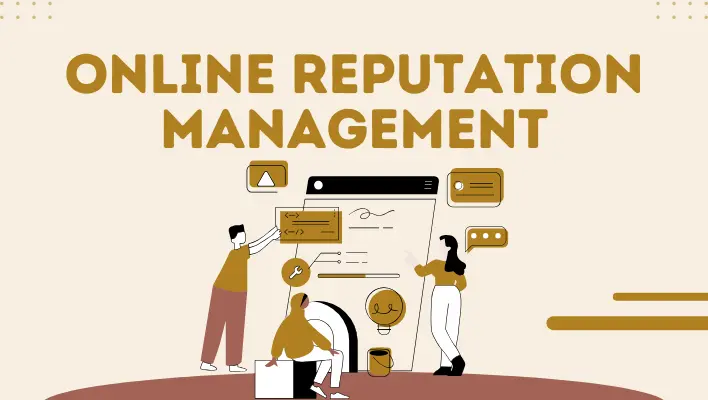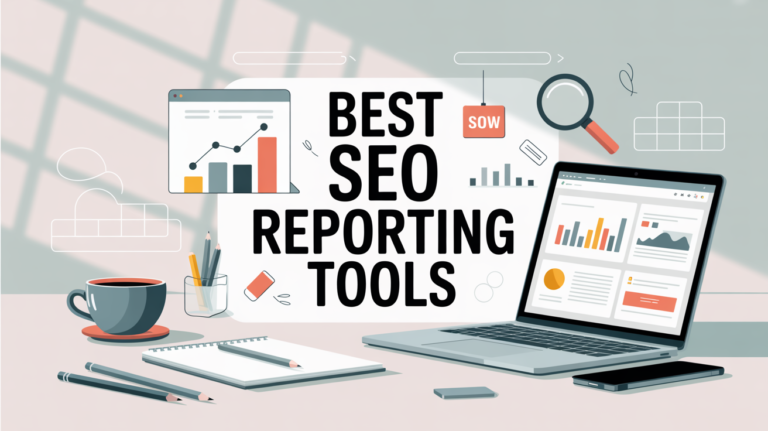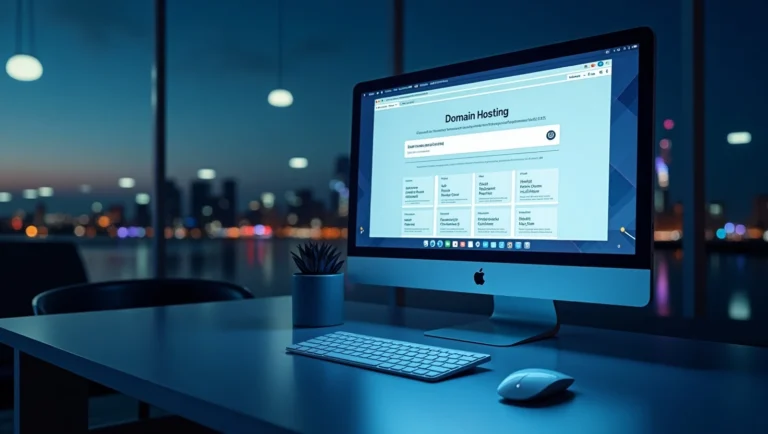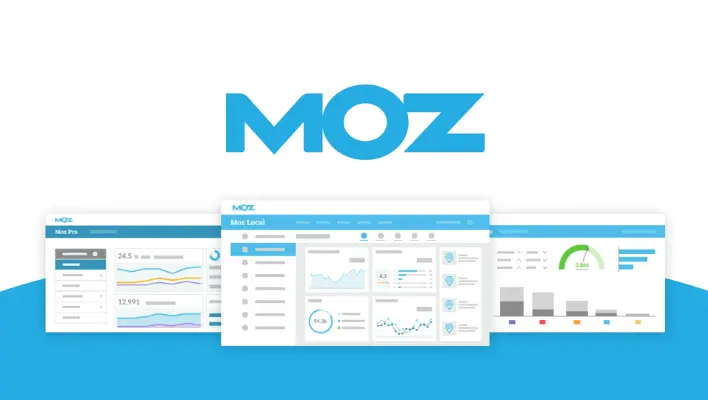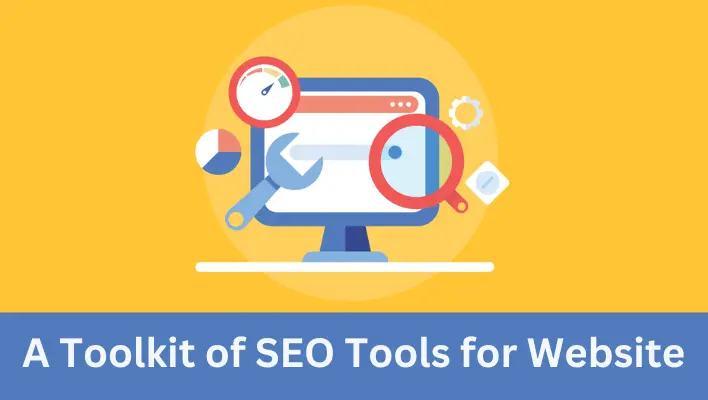Understanding SEO Issues: Common Problems and How to Fix Them
In today’s digital landscape, search engine optimization (SEO) is a vital component for online visibility and success. However, many websites struggle with SEO issues that can severely hinder their performance on search engines like Google. Whether you’re a blogger, business owner, or digital marketer, addressing these problems is key to increasing website traffic and ranking higher in search results.
Contents
What Are SEO Issues?
SEO issues refer to any errors or shortcomings that prevent your website from achieving optimal visibility on search engines. These can range from technical SEO glitches to poor on-page SEO practices. Left unaddressed, they can reduce organic traffic, increase bounce rates, and damage your site’s credibility.
Common SEO Issues (and How to Resolve Them)
1. Slow Page Speed
A sluggish website can frustrate users and hurt your rankings. Page speed is a confirmed ranking factor for Google. Use tools like the Website Speed Test on Mini SEO Tools to diagnose performance issues and identify opportunities to optimize loading times.
2. Duplicate Content
Search engines penalize websites with duplicate content, as it confuses the indexing process. Use a plagiarism checker or duplicate content checker to ensure your content is original. Mini SEO Tools offers a reliable plagiarism checker that can help maintain content uniqueness.
3. Keyword Stuffing
Overusing keywords can lead to penalties. Instead, focus on natural language and include LSI keywords like “organic search,” “search engine rankings,” and “SEO tools.” Conduct keyword research using tools such as the Keyword Position Checker to track performance and adjust your strategy.
4. Broken Links
Dead or broken links not only harm user experience but also hurt your site’s authority. Use a Broken Links Checker to regularly audit your website. Fix or remove dead links to maintain a healthy linking structure.
5. Poor Meta Tags Optimization
Meta titles and descriptions guide both users and search engines. Missing or poorly written meta tags can lower your click-through rates. Use the Meta Tags Analyzer to ensure your metadata is optimized for SEO.
6. Weak Backlink Profile
Backlinks remain a powerful ranking signal. A weak or spammy backlink profile can do more harm than good. Use the Backlink Checker to assess your link-building strategy and eliminate harmful links.
7. Lack of Mobile Optimization
With mobile-first indexing, your website must be responsive. Google prioritizes mobile-friendly websites in search results. Test your site’s responsiveness and make necessary improvements using free tools.
8. No Structured Data Markup
Schema markup helps search engines understand your content better and can improve click-through rates with rich snippets. Implementing structured data is essential for modern SEO.
Conducting an SEO Audit
A thorough SEO audit is the first step in identifying and resolving issues. Mini SEO Tools offers a comprehensive suite of tools to audit various SEO aspects including:
- Page speed
- Keyword density
- Domain authority
- Plagiarism
- Meta tag analysis
- Broken links
Use the SEO Score Checker to get a detailed overview of your site’s performance.
Final Thoughts
Solving SEO issues isn’t a one-time task—it requires consistent effort and attention to detail. From technical SEO fixes to optimizing meta tags and enhancing user experience, every detail matters. With free, easy-to-use tools from Mini SEO Tools, you can streamline the optimization process, stay ahead of competitors, and boost your site’s search engine rankings.

